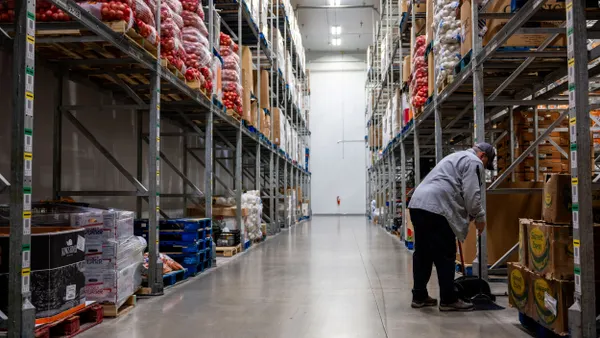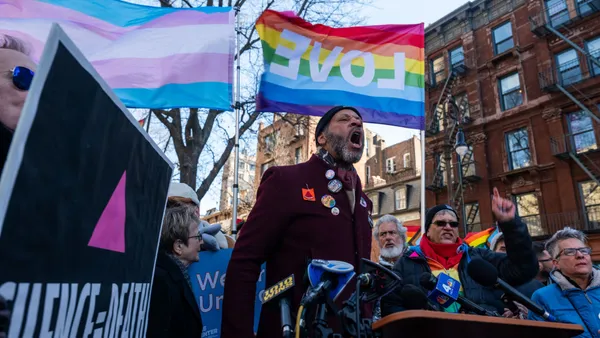The coronavirus pandemic is having a disproportionate economic effect on women, research has shown. The U.S. Bureau of Labor Statistics' (BLS) December job report further illustrated that women have endured the brunt of job loss.
Employment declined by 140,000 jobs in December, BLS reported; women lost 156,000 jobs while men gained 16,000, according to The National Women's Law Center's (NWLC) analysis. "Between January and December 2020, almost 2.1 million women left the labor force, including 564,000 Black women and 317,000 Latinas," the NWLC stated in the report. About 6.3% of women, overall, in the U.S. ages 20 and older were unemployed in December, up slightly from 6.2% in November and more than twice as high as February's numbers, according to the organization. However, 8.4% of Black women ages 20 and older and 9.1% of Latinas remained unemployed, the report found.
Working women also will be impacted the most amid a child care crisis, experts said during a panel discussion hosted by The Brookings Institution in August. Girls Who Code founder and CEO Reshma Saujani said the organization took out a full-page ad in The New York Times Jan. 26 "calling on the Biden administration to support moms by implementing a Marshall Plan For Moms in the first 100 days;" 50 prominent women signed on to the letter, Saujani said on Twitter. "Like the original Marshall Plan of 1948, this plan would be a financial investment in rebuilding from the ground up," the letter stated.
But employers can also take several steps to ensure women's careers aren't completely derailed by the pandemic, according to Nancy Wang, founder and CEO of Advancing Women in Product (AWIP) and head of data protection services at Amazon Web Services.
'Inserting a bookmark in your career'
Many of the factors that cause women to be disproportionately affected by the pandemic are outside of their control, Wang told HR Dive in an interview. AWIP, a nonprofit founded in 2017 to address the gaps in tech management roles that were filled by women and other underrepresented groups, is now working on solutions for women whose careers have been impacted by the pandemic.
School closures and lack of childcare options mean working mothers need flexibility in schedules, Wang said. But for some employers, flexibility can be viewed negatively, even if a woman's output remains the same, she said. For 2021 and beyond, HR can advocate for policies where flexible schedules are no longer by exception only, or simply tolerated, but a "very normal option that is available to good performers," Wang said; "It should not be seen as something that is detrimental to their careers." This will help to retain top performers, she said.
But in the event women decide to step away from the workforce, AWIP wants employers to prepare them for an eventual return to work, Wang said. A return-to-work document can help women start where they left off, without having to regain the trust of leadership or having to rebuild their credibility, she said. A manager would be responsible for writing a document that stated all of the employee's achievements during her tenure as well as all of the cross-social relationships or initiatives that the employee was able to drive, Wang said.
"It's almost like inserting a bookmark in your career, so that you can pick up where you left off," she said.
Supporting sponsorship
Women and underrepresented groups are much less likely to hold leadership positions at some of the country's largest tech companies, according to both outside research and internal diversity and inclusion employee data. Remote work during the pandemic may also affect a woman's ability to advance into leadership positions, according to Wang.
AWIP surveyed more than 1,000 unique respondents, primarily women, in various technical roles in various levels of seniority for its 2020 Future of Women report, Wang said. Respondents were asked when their voice was most heard in the past 12 months. The leading response for women surveyed was "in person meetings" (about 43%) with "remote meetings with audio and video" the second most common category (30%). "Men are slightly more inclined than women to feel their voices are heard in most locations, including in-person meetings, where there is a seven point difference," according to the report.
"Oftentimes, having a voice is directly correlated with your ability to influence, guide and lead," Wang said. More than half (53%) of women who participated in the survey said the pandemic will impact the ability to switch jobs or advance to new jobs. In addition, sponsorship — the act of an individual vouching for the achievements of a protégé and advocating for their career advancement — may be hampered as well, Wang said. It takes time to build up the trust needed for sponsorship, she said. It's asking a lot for "someone to put their own reputation on the line for [an individual] they've never met in person or have never engaged [with] in a significant way," Wang said. Approximately 60% of the top 75 companies on Working Mother's 2020+ Top Companies for Executive Women offer formal sponsorship programs. A 2019 PayScale report found that sponsorships can help close the wage gap, in particular for Black women and Latinas.
Sponsorship was important in Wang's own career. "I am the youngest general manager at [Amazon Web Services]," she said. "My leadership believed enough in me to put me up for a role that I had never done before. I've never led a team of over 50 people until I've been in my current role at Amazon. If I don't do well, it also reflects negatively on whoever sponsored me into this role."
Despite the pandemic, "we need to continue facilitating opportunities for women to demonstrate their capabilities," Wang said. "What we're finding to be a fairly sustainable model is actually having volunteers who would like to be sponsored work on a particular project," she said; for example, "facilitating the executive advisory board meeting where we have to pull financials, look at our P&L [profit & loss] and examine overall vision." Notably, P&L experience is usually required for the path to CEO, according to Working Mother.
AWIP and Amazon Web Services are also focusing on online training. In October, they launched a series of Coursera courses to train underserved technical and non-technical professionals with product management skills. The courses are taught by full-time product management leaders drawing upon disciplines including engineering, business, artificial intelligence, design and leadership. The series is free to audit; a certificate requires a subscription, according to the announcement.
Wang also said she encourages women to continue to network virtually amid the pandemic. "It's so important to reach out," she said. "That's why I have a personal goal and I encourage all of the AWIP team members, as well as those in our community, to at least meet one new leader that you admire every week, or catch up with an old contact every week."












